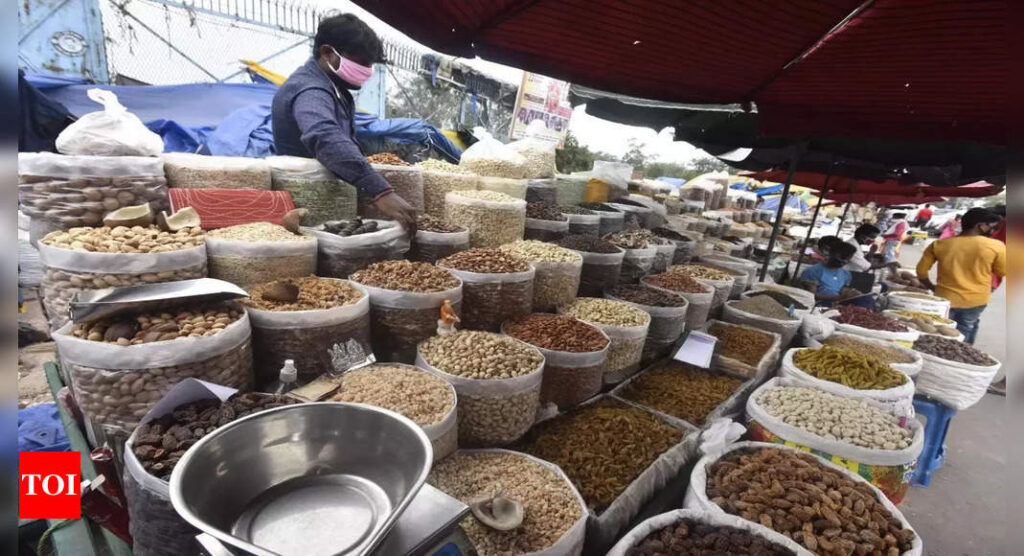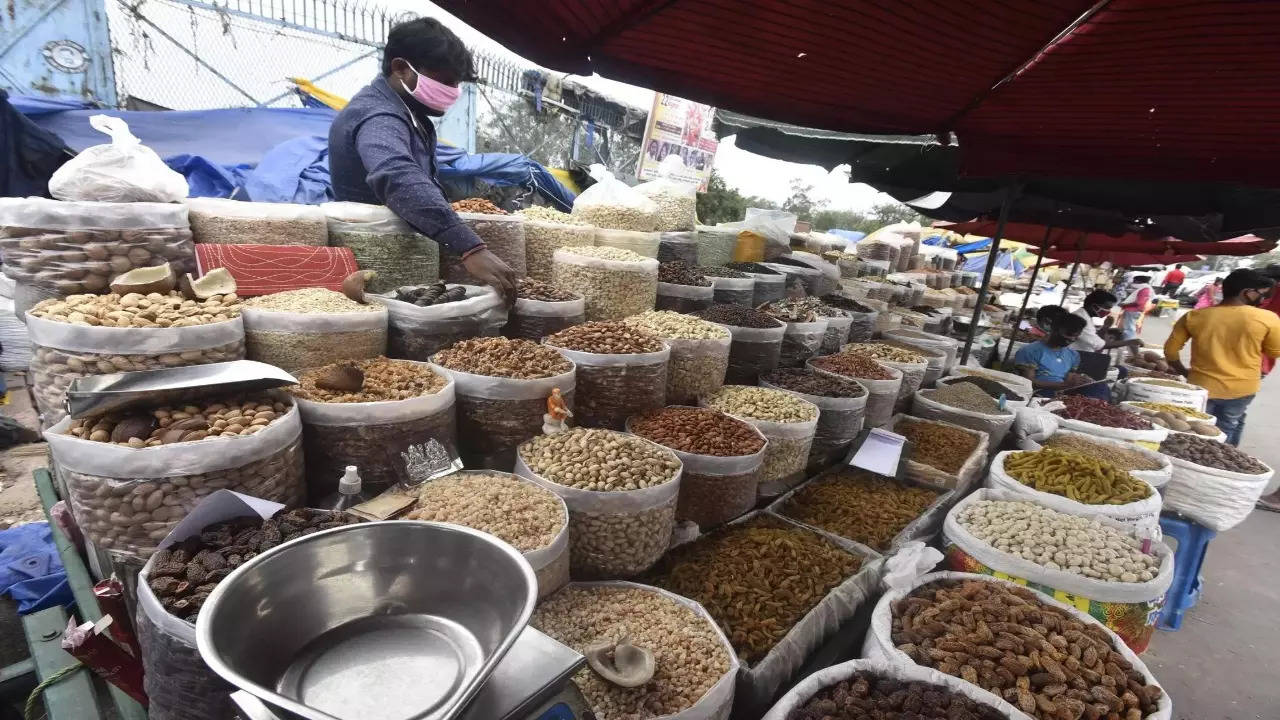[ad_1]
MUMBAI: Monetary policy committee (MPC) members were concerned about inflation spiking due to price shocks, particularly food, minutes of the latest meeting released by RBI on Friday showed.
The members’ concerns were echoed by RBI governor Shaktikanta Das, who stated that the inflation outlook was beset with uncertainty, especially regarding global food and energy prices, and emphasised the need for a disinflationary policy. The MPC meet concluded on October 6, a day before Hamas attacked Israel.
The minutes showed that Das reiterated that the goal was to align inflation with the 4% target and reduce inflation expectations, and that monetary policy has to act if the situation so warrants. “Recurring incidences of large and overlapping supply-side shocks bring with them the risks of the generalisation of inflation impulses, a possible loss of monetary policy credibility, and the de-anchoring of inflation expectations,” Das said.
The hawkish statements of members, even before the conflict in West Asia broke out, indicate that the central bank is unlikely to ease monetary policy soon. While the MPC did not announce any rate increase, there are indicators that RBI may try to control prices through liquidity management. Das said, “RBI has maintained a flexible and adaptive approach to liquidity management. It will remain nimble-footed and ensure that liquidity is actively managed by undertaking whatever operations are necessary from time to time, including open market operation sales.”
Deputy governor Michael Patra indicated consumers are not fully convinced that inflation is under control. The third RBI member, Rajiv Ranjan, said that inflation is expected to moderate to 4.3% only in Q4 of FY25.
The members’ concerns were echoed by RBI governor Shaktikanta Das, who stated that the inflation outlook was beset with uncertainty, especially regarding global food and energy prices, and emphasised the need for a disinflationary policy. The MPC meet concluded on October 6, a day before Hamas attacked Israel.
The minutes showed that Das reiterated that the goal was to align inflation with the 4% target and reduce inflation expectations, and that monetary policy has to act if the situation so warrants. “Recurring incidences of large and overlapping supply-side shocks bring with them the risks of the generalisation of inflation impulses, a possible loss of monetary policy credibility, and the de-anchoring of inflation expectations,” Das said.
The hawkish statements of members, even before the conflict in West Asia broke out, indicate that the central bank is unlikely to ease monetary policy soon. While the MPC did not announce any rate increase, there are indicators that RBI may try to control prices through liquidity management. Das said, “RBI has maintained a flexible and adaptive approach to liquidity management. It will remain nimble-footed and ensure that liquidity is actively managed by undertaking whatever operations are necessary from time to time, including open market operation sales.”
Deputy governor Michael Patra indicated consumers are not fully convinced that inflation is under control. The third RBI member, Rajiv Ranjan, said that inflation is expected to moderate to 4.3% only in Q4 of FY25.
[ad_2]
Source link











More Stories
India’S Growth Forecast: S&P ups India’s FY’24 growth forecast to 6.4% on robust domestic momentum
India to remain fastest-growing major economy, but demand uneven: Poll
Jack Ma: Jack Ma gets back into business with ‘Ma’s Kitchen Food’